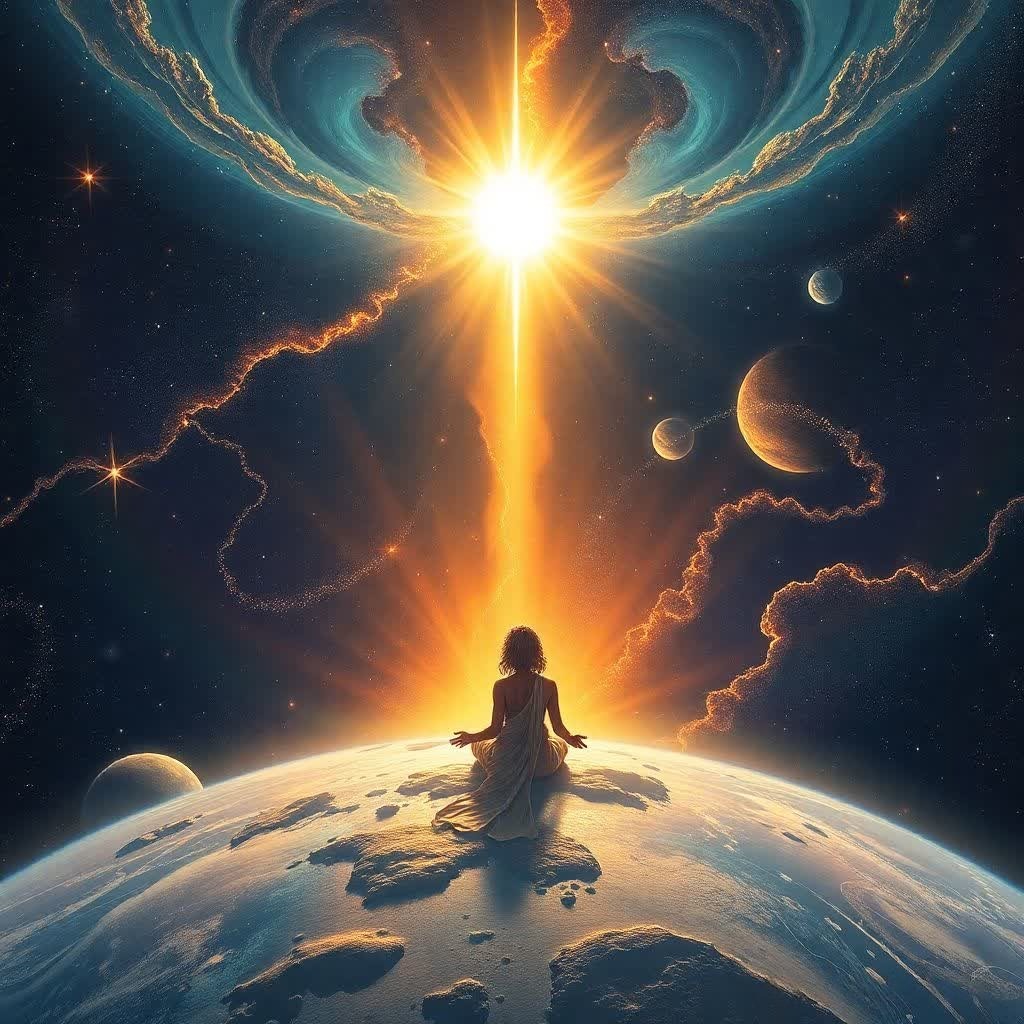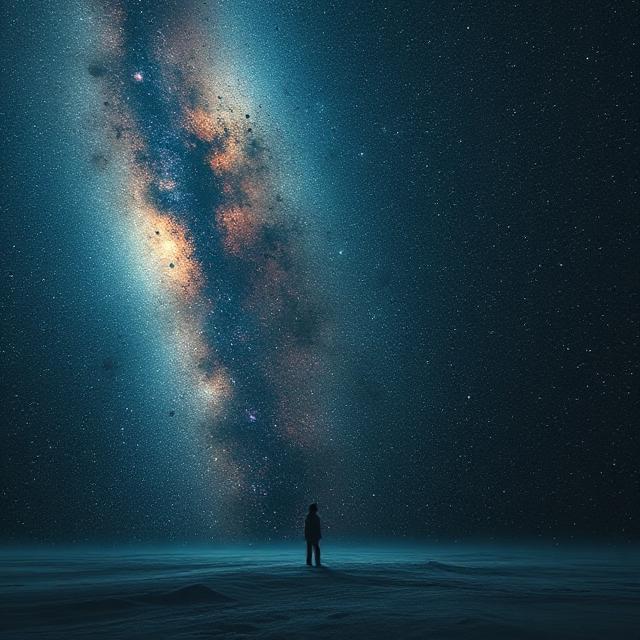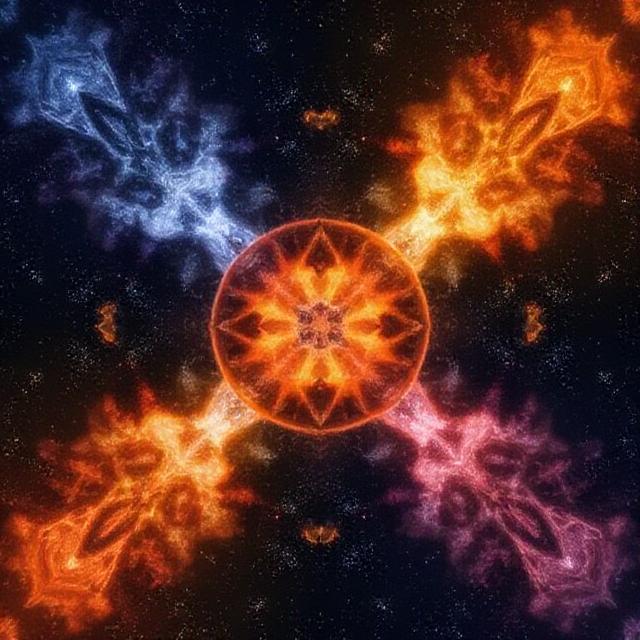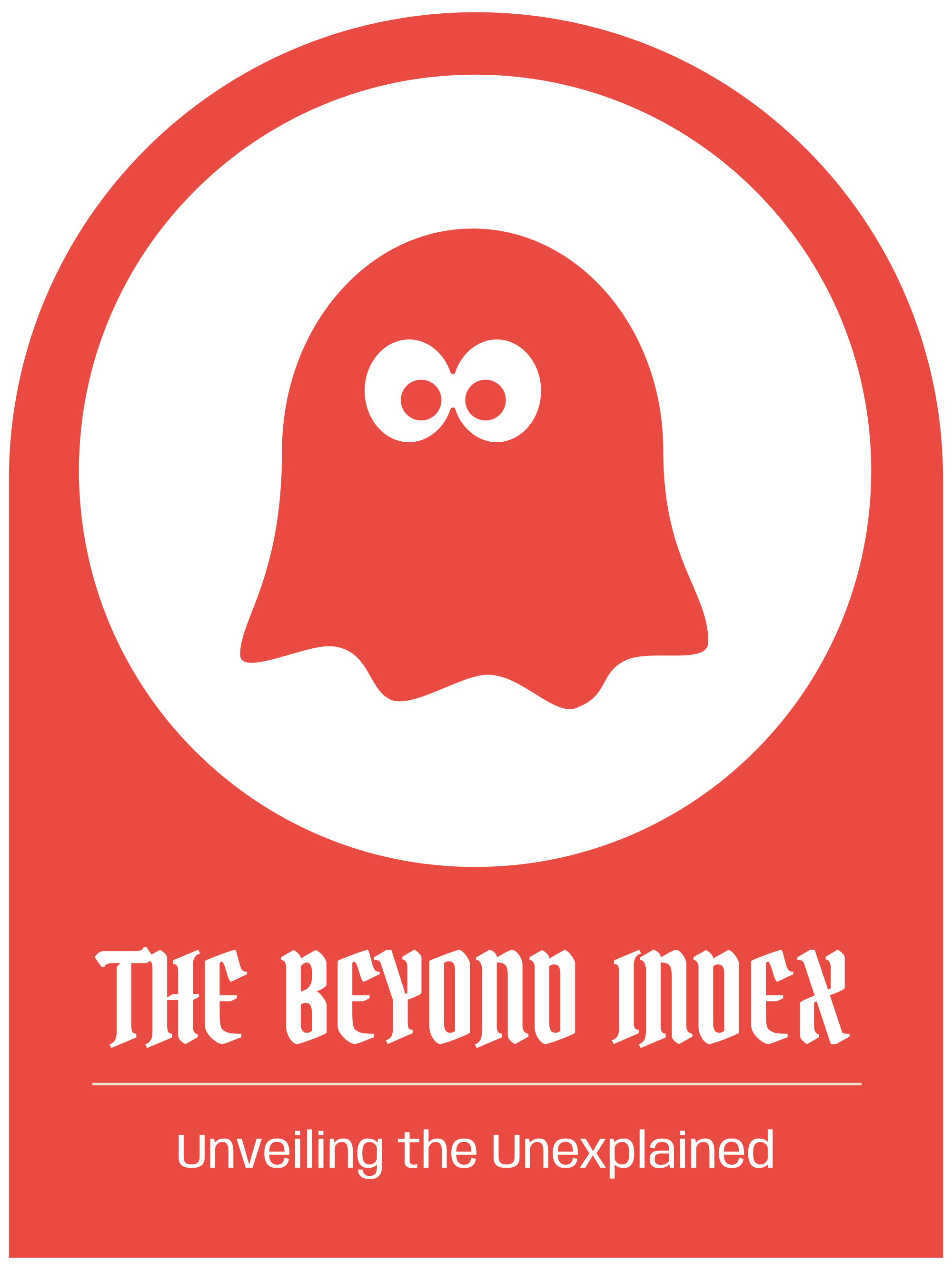If Everything Came from Nothing, Then Where Did That 'Nothing' Come From?

🌀 If Everything Came from Nothing, Then Where Did That “Nothing” Come From?
One of the most mind-bending questions we can ask is deceptively simple:
If everything came from nothing… then where did that nothing come from?
It sounds like a paradox — and in some ways, it is.
But it’s also a question that sits at the very edge of physics, philosophy, and spiritual reflection.
A question that may not have an answer, but still begs to be asked.
🚫 What Do We Really Mean by “Nothing”?
When we think of “nothing,” we imagine a blank void — a total absence of space, time, energy, and matter.
But in physics, “nothing” is more complicated.
In quantum field theory, even “empty” space isn’t truly empty. It’s a restless sea of virtual particles and energy fluctuations, called the quantum vacuum. This “nothing” isn’t absolute — it’s buzzing with potential.
So when scientists propose the universe may have arisen from nothing, they usually mean a quantum state with no classical matter — not a total absence of reality.
In this sense, “nothing” might be more like a primordial something.
🌌 What Science Says About the Beginning
The Big Bang Theory describes how the universe evolved from an extremely hot, dense state — but it doesn’t tell us what caused that state, or what came before.
Some modern theories suggest:
- The universe spontaneously tunneled into existence from a quantum vacuum.
- It may be one of countless bubbles in a multiverse.
- Time itself may have emerged with the Big Bang, meaning there was no “before.”
But each of these relies on something already existing — like quantum fields, laws of physics, or spacetime frameworks.
Which leaves us staring back into the same cosmic riddle: Where did that come from?
🧠 The Philosophical and Spiritual Angle
If physics hits a wall, can philosophy go further?
Many philosophers argue that true “nothing” cannot produce something — and so, something must have always existed. Maybe it’s a brute fact. Maybe it’s a necessary truth. Maybe it’s… God.
In theology, God is often described as an uncaused cause — something eternal that exists beyond time, never created, never ending.
But some thinkers go further and suggest the question itself may be flawed — like asking, “What’s north of the North Pole?” If time began with the universe, then asking “before” becomes meaningless.
Still… the mystery persists.
🕯️ The Timeless Mystery: What If There Was Never a Beginning?
What if the question “Where did it all begin?” is flawed — because there was no beginning at all?
Across cultures and religions, the idea of something eternal — something that has always existed — is not only common, but foundational.
🕉️ In Hinduism
Time is cyclical, not linear. The universe expands and contracts in endless cycles, called kalpas, stretching billions of years.
There is no absolute beginning — only a rhythmic pulse of creation, destruction, and rebirth, without end.
“There was neither non-existence nor existence then… what covered it? Where was it, and who knows?”
— Rig Veda, 10.129 (Nasadiya Sukta)
Even the gods, in this verse, don’t know how it all started — or if it ever did.
🕊️ In Christianity
The concept of God is often described as eternal and uncaused — a being with no beginning and no end.
“I am the Alpha and the Omega, the beginning and the end.”
— Revelation 22:13
Here, God is framed not as something in time, but as something outside it — with time itself being a created dimension.
☸️ In Buddhism
While avoiding speculation on ultimate creation, Buddhism often describes reality as beginningless — a cycle of causes and conditions with no first cause.
“This samsara is without discoverable beginning… A first point is not known.”
— Samyutta Nikaya
The idea of a “first moment” dissolves — and with it, the need for a creator as we typically understand it.
🌌 Mind-Bending Implication: Eternity Isn’t Just Long… It’s Outside Time
Try to imagine something that never began — not even as an abstract idea.
It’s nearly impossible.
Your mind wants to say, “Okay, but what came before that?”
But eternity, by definition, has no “before.”
It just is.
What if the universe — or the ground of all being — is like that?
Not created.
Not caused.
Not born.
Just… there.
Timeless. Spaceless. Forever humming at the root of reality.
🧠 From a Scientific Viewpoint…
Even some physicists are entertaining models where the universe has no true beginning:
- Eternal Inflation: A constantly expanding backdrop from which universes endlessly bud.
- Conformal Cyclic Cosmology (Roger Penrose): The universe goes through infinite cycles, each Big Bang a rebirth.
- The No-Boundary Proposal (Hawking & Hartle): Time behaves like space near the origin — meaning there is no edge to time. No starting line.
In these models, the universe doesn’t begin — it just is, in forms we’re only beginning to understand.
💫 Final Reflection: Maybe It Was Always There
Maybe the question isn’t “What started it all?”
Maybe it’s:
What if it never started?
What if existence itself — the laws of nature, or a divine consciousness, or some formless “being-ness” — is the only true constant?
And what if the illusion of a beginning…
is just that — an illusion shaped by the fact that we are caught in the flow of time?
What appears eternal to us may just be too vast to measure,
like trying to see a mountain with your face pressed against the stone.
🌌 Final Thought
Whether the universe arose from a quantum fluctuation, a divine will, or something we’ll never name…
Whether “nothing” was ever truly real, or just another illusion of perspective…
One thing is certain:
We are something — that is now asking about nothing.
We’re a part of the mystery, looking back at it.
And maybe that’s the real beginning.
More Cosmic Wonders

The Silence in the Stars: 6 Chilling Possibilities Behind the Fermi Paradox
If intelligent life should be common in the universe, why haven’t we seen any signs of it? From cosmic filters to simulation theory, here are the most haunting answers to the Fermi Paradox.

The Symmetry Paradox: Why Is the Universe So Perfectly 'Just Right'?
From fine-tuned constants to missing antimatter and the invisible influence of dark matter, this post explores the unsettling question: Why does the universe obey such perfect patterns?

Beyond Belief: 10 Space Facts That Shatter Your Reality
Space is weirder than science fiction. Here are 10 space facts that sound fake—but are completely real.
